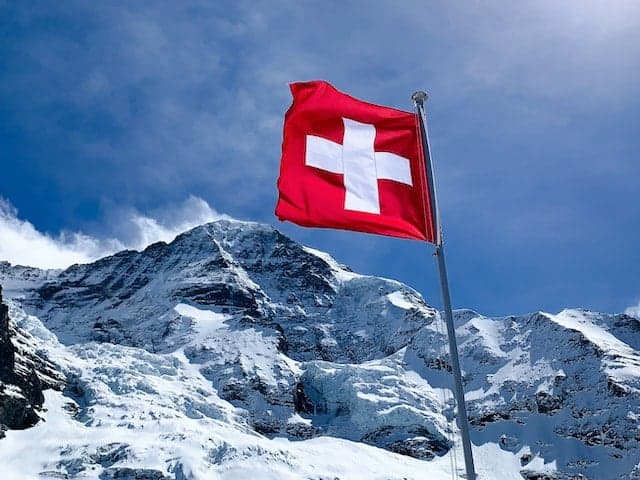Reader question: Is it better to learn Hochdeutsch or Swiss German?

If you live in a German-speaking part of Switzerland you will likely consider learning the language. But should you start with standard German (Hochdeutsch) or a form of Swiss German?
There are a huge variety of Swiss German dialects within the small Alpine nation of Switzerland.
But people in German-speaking or multi-language areas also know standard or high German - or Hochdeutsch.
So when people arrive in Switzerland, they often wonder which form of German they should seek to understand and speak first.
If you are trying to learn either Hochdeutsch or Swiss German you will be aware of the complications that all the different ways of communicating can present in everyday life.
The German you will learn in Switzerland is in fact usually Swiss Standard German, a variation of the High or Standard German used in Germany. The variations are generally words that the Swiss have adopted from dialect, French, Italian and English.
The Local asked Sabine Lenz from Sprachschule Schneider in Zurich what language they suggest to students who are unsure of what to learn.
READ ALSO: Seven things to know if you're learning Swiss German
Lenz said: “If they don’t know either of the languages we would suggest Swiss German as they need to understand the language spoken on the street.
"For working purposes it is better to learn High German as this is the business language in the workplace.”
As Sprachschule Schneider is based in Zurich, the Swiss German they teach is Züridütsch. This form of Swiss German is similar to other northern, or High Alemannic, dialects in Switzerland.
Beginner classes are held in English and the text books are trilingual - written in English, Swiss German and High German.
Lenz said: “The most difficult thing about teaching Swiss German is that it isn’t an exact language in itself as there are no perfect rules like in High German.
The focus is on speaking, which can help boost beginners' confidence.
"The written Swiss German needs to be read out loud to be understood," said Lenz. "The beginner courses are focused on speaking.”
However, part of the paradox of learning either Hochdeutsch or Swiss German is that you will still be exposed to the other one almost daily.
So in the end one language or dialect is learnt actively and the other language or dialect will be learnt passively.
READ ALSO: Hochdeutsch vs Swiss German - What are the key differences?
Comments
See Also
There are a huge variety of Swiss German dialects within the small Alpine nation of Switzerland.
But people in German-speaking or multi-language areas also know standard or high German - or Hochdeutsch.
So when people arrive in Switzerland, they often wonder which form of German they should seek to understand and speak first.
If you are trying to learn either Hochdeutsch or Swiss German you will be aware of the complications that all the different ways of communicating can present in everyday life.
The German you will learn in Switzerland is in fact usually Swiss Standard German, a variation of the High or Standard German used in Germany. The variations are generally words that the Swiss have adopted from dialect, French, Italian and English.
The Local asked Sabine Lenz from Sprachschule Schneider in Zurich what language they suggest to students who are unsure of what to learn.
READ ALSO: Seven things to know if you're learning Swiss German
Lenz said: “If they don’t know either of the languages we would suggest Swiss German as they need to understand the language spoken on the street.
"For working purposes it is better to learn High German as this is the business language in the workplace.”
As Sprachschule Schneider is based in Zurich, the Swiss German they teach is Züridütsch. This form of Swiss German is similar to other northern, or High Alemannic, dialects in Switzerland.
Beginner classes are held in English and the text books are trilingual - written in English, Swiss German and High German.
Lenz said: “The most difficult thing about teaching Swiss German is that it isn’t an exact language in itself as there are no perfect rules like in High German.
The focus is on speaking, which can help boost beginners' confidence.
"The written Swiss German needs to be read out loud to be understood," said Lenz. "The beginner courses are focused on speaking.”
However, part of the paradox of learning either Hochdeutsch or Swiss German is that you will still be exposed to the other one almost daily.
So in the end one language or dialect is learnt actively and the other language or dialect will be learnt passively.
READ ALSO: Hochdeutsch vs Swiss German - What are the key differences?
Join the conversation in our comments section below. Share your own views and experience and if you have a question or suggestion for our journalists then email us at [email protected].
Please keep comments civil, constructive and on topic – and make sure to read our terms of use before getting involved.
Please log in here to leave a comment.